Cheuan Deng 犬燈 “The Dog Lantern”, a 狐狸精 fox spirit story from the 聊齋志異 Liaujai Jyhyih, by 蒲松齡 Pwu Songling
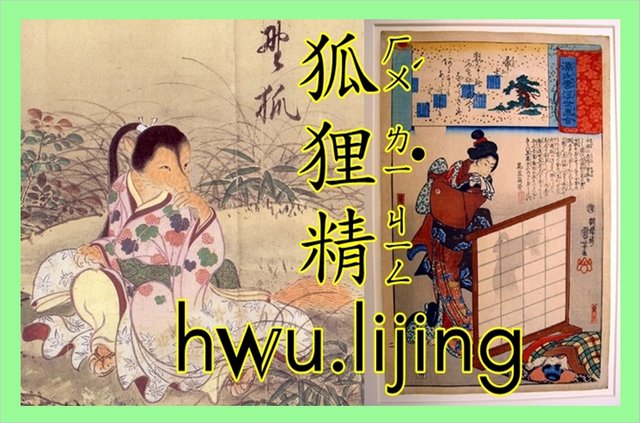
Chinese folklore abounds in tales of fox spirits who seduce men by shapeshifting into beautiful women. Japan and Korea have their own variants of such tales.
Japanese Fox Spirits
The title graphic shows two views of a Japanese fox spirit (creative commons images of Chinese fox spirits were not available)
(1) On the left is Suushi Yakō 野狐 from the Hyakkai Zukan 百怪図巻 “The Illustrated Volume of a Hundred Demons”, PD image [https://en.wikipedia.org/wiki/Hyakkai_Zukan]
(2) On the right is Kuzunoha 葛の葉, a fox spirit whose appearance resembles the one in the Dog Lantern. Notice how she appears human, but the shadow she casts on the sleeping man reveals her true self [https://en.wikipedia.org/wiki/Kuzunoha]
Transliteration and Translation of “The Dog Lantern”
(Detailed explanations will follow in the comments below)
Classical Chinese is exceedingly terse. Here is the unpunctuated text of “ The Dog Lantern”:
韓光祿大千之僕夜宿廈間見樓上有燈如明星未幾熒熒飄落及地化為犬睨之轉舍後去急起潛尾之入園中化為女子心知其狐還臥故所俄女子自後來僕陽寐以觀其變女俯而撼之僕偽作醒狀問其為誰女不答僕曰樓上燈光非子也耶女曰既知之何問焉遂共宿止晝別宵會以為常主人知之使二人夾僕臥二人既醒則身臥床下亦不知墮自何時
The original story only takes up a few lines (141 characters), and yet the English translation expands to a quite respectable 15 lines (251 words). Below is my own sentence-by-sentence translation of the elegant 文言文 (Classical Chinese) original, part of a projected Introduction to Classical Chinese, a course I am slowly compiling.
For the time being, I am posting the Chinese text, transcription in GR Tonal Spelling and a fluent (not word-for-word) translation. More details about grammar, vocabulary and pronunciation will appear in the comments below. I would very much appreciate any comments or corrections!
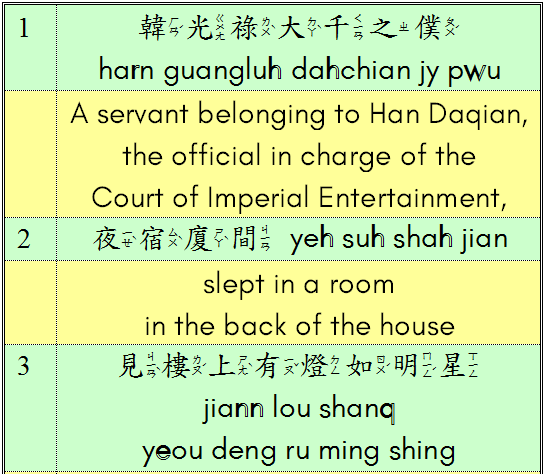
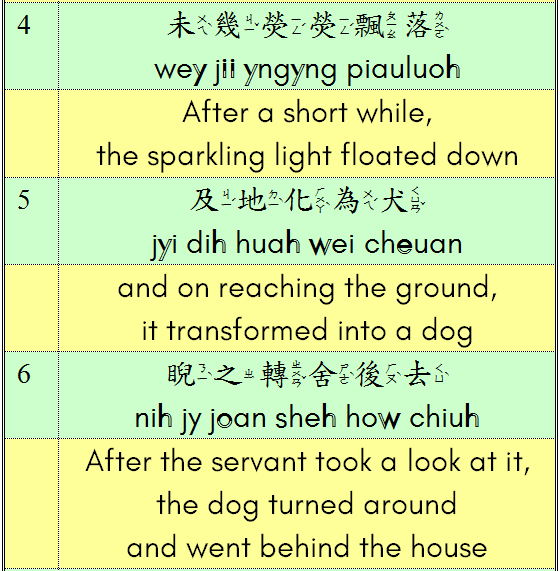
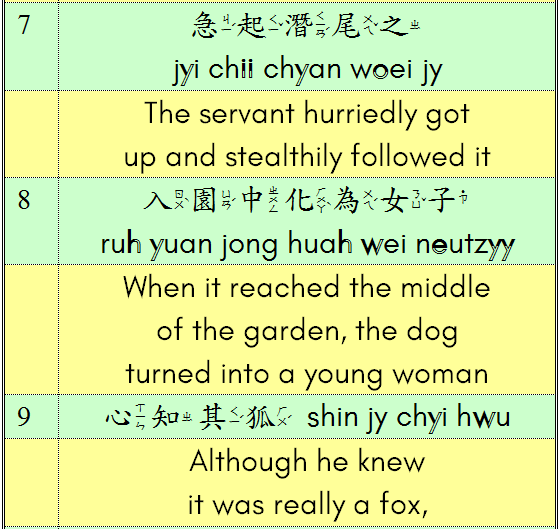
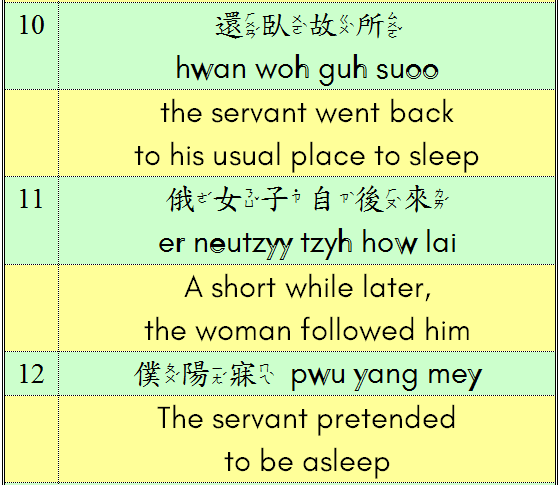
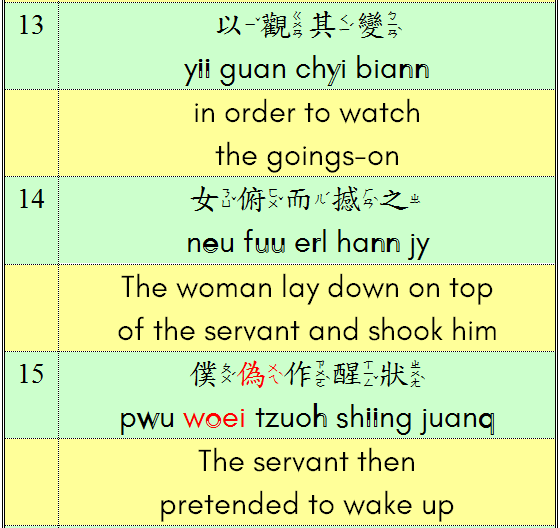
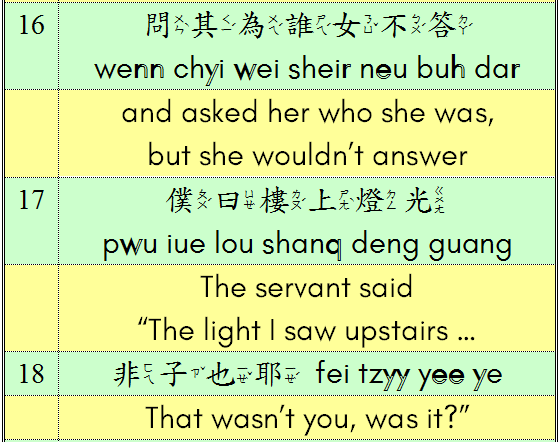
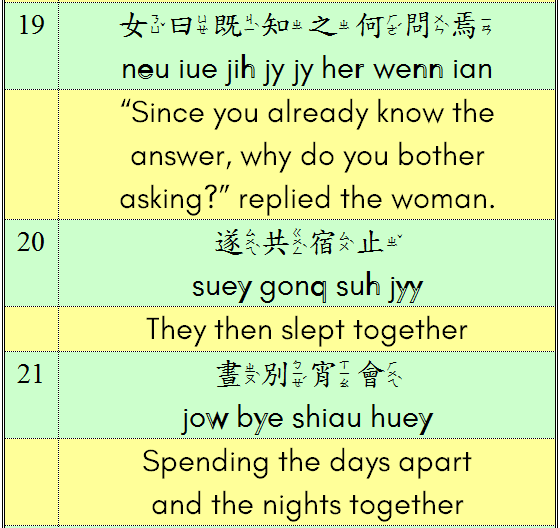
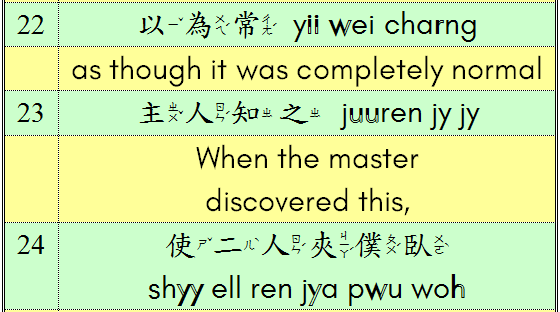
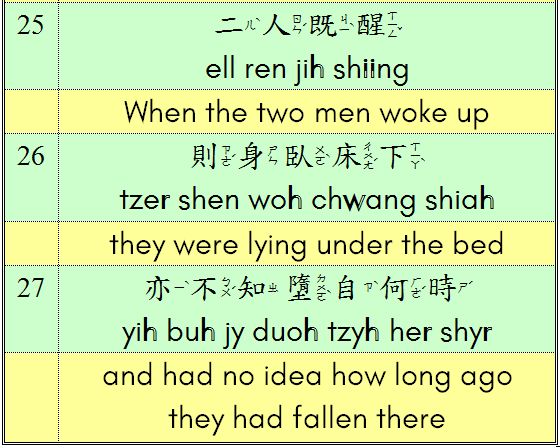
Previous Fox articles:
Chinese Fox idioms-1 狐假虎威 Fox Borrows Tiger’s Majesty hú jiǎ hǔ wēi / hwu jea huu uei
https://steemit.com/cn/@wentong-syhhae/chinese-fox-idioms-1-fox-borrows-tiger-s-majesty-hu-ji-h-wei-huu-jea-huu-uei
Chinese Fox idioms-2 兔死狐悲 When the Hare Dies, the Fox Grieves, tù sǐ hú bēi / tuh syy hwu bei
https://steemit.com/cn/@wentong-syhhae/chinese-fox-idioms-2-when-the-hare-dies-the-fox-grieves-tu-s-hu-bei-tuh-syy-hwu-bei
Four Kinds of Foxes 四種狐狸 (雙語)
https://steemit.com/cn/@wentong-syhhae/four-kinds-of-foxes
Who I am
https://steemit.com/introduceyourself/@wentong-syhhae/enthusiastic-intp-polyglot
In everyday spoken Chinese, a 狐狸精 húlijīng / hu.lijing (note: in standard Mandarin, the 2nd syllable is neutral tone) is a very attractive woman who uses her body and feminine wiles to reach her goal (usually sex or an opportunity to drain a rich man's bank account). She is totally unscrupulous in her drive to seduce lonely men or other women's husbands/boyfriends.
This is a term of abuse which concedes a certain degree of grudging admiration ("I wish I had her looks and willingness to disregard other people's disapproval").
@wentong-syhhae, I gave you a vote!
If you follow me, I will also follow you in return!
光祿 guangluh on line 1.1 refers to 光祿寺, one of the Nine Courts (service agencies of the imperial court). 光祿寺 was responsible for the preparation of imperial banquets:
https://en.wikipedia.org/wiki/Court_of_Imperial_Entertainments
https://en.wikipedia.org/wiki/Nine_Courts
On line 2, notice the exceedingly terse grammar that is a key feature of Classical Chinese, a high context language (= if something can be inferred from context, it need not be stated explicitly):
夜宿廈間 [literally] night, sleep, back-of-house, room
= At night he slept in a room at the back of the house
Here, there are no prepositions whatsoever. What a cool sentence structure!